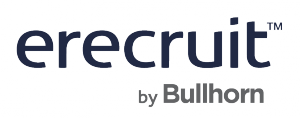Recruiting from the Viewpoint of the Millennial

You probably know about the current employment disconnect companies and recent college graduates are experiencing. Data found in your staffing and recruiting software probably even helps to demonstrate this disconnect firsthand. While just about every workplace demographic is suffering, the Millennial generation in particular is experiencing a high degree of hardship.
What does the gap actually look like? Examine the following statistics (found in this article), compiled by Experience, Inc. In a study analyzing hiring trends for the class of 2012, it found:
- 91% of employers would like students to have one or two internship experiences under their belt by the time they graduate, but 50% have failed to hire an intern in the past six months
- 87% of companies believe internships should be at least three months in duration, while most internships last two months
- 42% of employers are turned off by student unpreparedness during interviews
- 26% of businesses say they do not like students’ ‘bad attitudes’
As a staffer or recruiter, how can you help alleviate this disconnect – and in so doing – better serve both candidates and the companies you represent? By taking the time to better understand the Millennial Perspective.
During the recruiting process, you may often find yourself wondering what it is that makes different generations of employees tick. It’s easy to simply blame the new generation of worker and push them aside. But, Millennials are the current generation of employee, and somehow, you are going to have to find a way to hire the best candidates and integrate them into your workplace.
The recruiting software you use may not be able to reveal some of the following thoughts and attitudes many Millennials have:
- Millennials do want to be praised regarding the quality of their work. What may appear to be a “bad attitude” toward work may really be a frustrated employee who doesn’t know which direction to go. Yes, Millennials were raised in a generation where everything they did was viewed as wonderful, but the average individual wants positive feedback so he or she knows they are on the right track, not necessarily because they need their ego polished.
- Most Millennials do want to work hard. While employers see candidates unwilling to go the extra mile or who feel entitled to great salaries and benefits without the requisite work, the truth is many Millennial candidates were willing to work unpaid internships during college and accept low hourly rates in order to make it to the next step in their careers. It may be that the frequency of candidates willing to be brasher about their workplace expectations is greater than in the past, but it’s certainly not representative of every worker in Gen Y.
These two counterpoints are ones staffing and recruiting software may not be able to pick up on – they require individual judgment. Sure, there are some candidates out there with poor attitudes, but those candidates are found in every generation.
When recruiting this generation, keep an open mind and try to see things from their perspective – you may find yourself surprised when you do.
To learn more about how recruiting and staffing software from Bond US can help your agency achieve its recruiting goals, regardless of what generation candidates you are bringing on, request a demo.

 If you work for a recruiting or staffing agency, you have an opinion on Millennial – or Generation Y – candidates. For seasoned recruiters or staffing professionals, these candidates – born between the early 80s and early 90s – can bring a frustratingly unbalanced mix of confidence and sense of entitlement. And, of course, all the resulting headaches.
If you work for a recruiting or staffing agency, you have an opinion on Millennial – or Generation Y – candidates. For seasoned recruiters or staffing professionals, these candidates – born between the early 80s and early 90s – can bring a frustratingly unbalanced mix of confidence and sense of entitlement. And, of course, all the resulting headaches. Some may find it strange that the personality of a group can impact the attitudes and practices of an entire industry – but when discussing generation Y and recruiting, that is exactly what is happening. By 2025, this 30-and-under crowd will make up half of the world’s population – and account for 75% of the workforce.
Some may find it strange that the personality of a group can impact the attitudes and practices of an entire industry – but when discussing generation Y and recruiting, that is exactly what is happening. By 2025, this 30-and-under crowd will make up half of the world’s population – and account for 75% of the workforce.